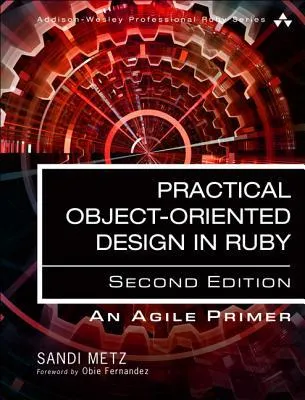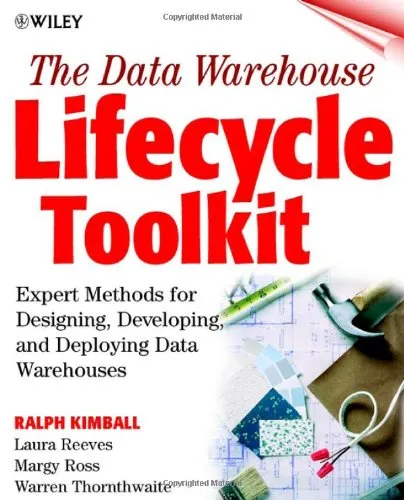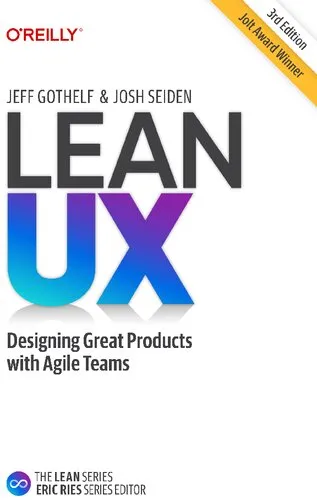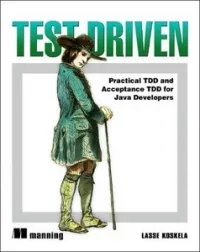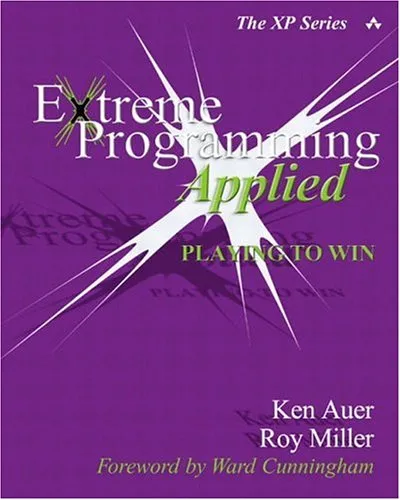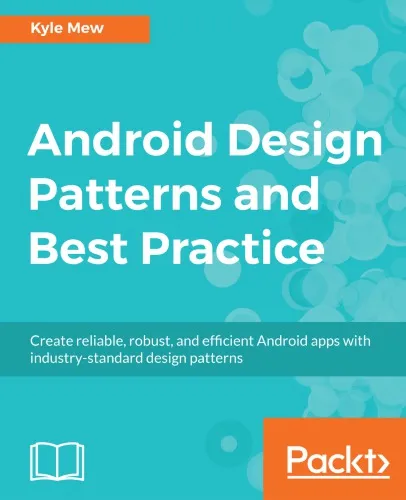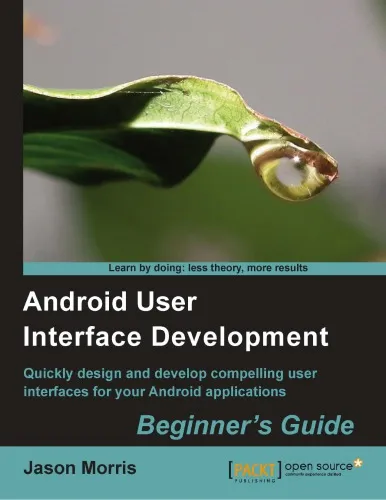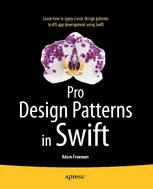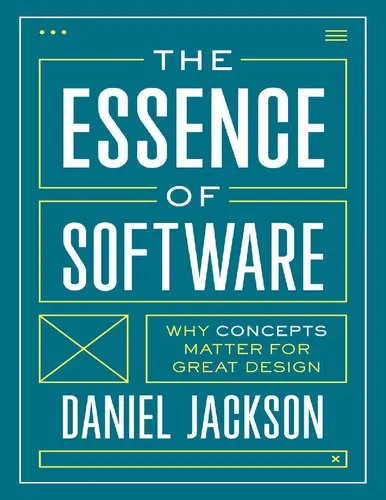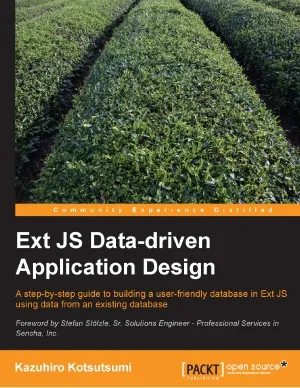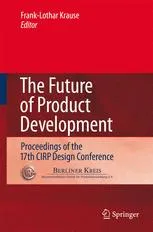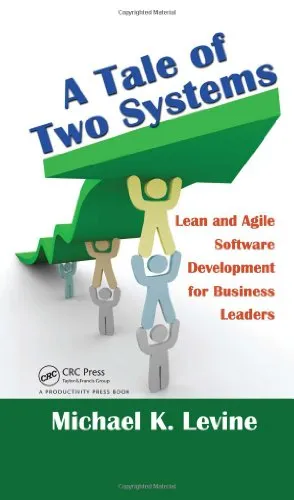Practical Object-oriented Design. An agile Primer ising Ruby [2nd ed.]
4.7
Reviews from our users

You Can Ask your questions from this book's AI after Login
Each download or ask from book AI costs 2 points. To earn more free points, please visit the Points Guide Page and complete some valuable actions.Related Refrences:
Introduction to 'Practical Object-Oriented Design: An Agile Primer Using Ruby (2nd Edition)'
Written by renowned software development expert Sandi Metz, Practical Object-Oriented Design is a powerful resource for anyone interested in mastering the art of crafting clean, maintainable, and efficient object-oriented systems. This second edition updates the original, making it even more accessible and relevant to modern developers, especially those working with Ruby and other object-oriented programming languages.
Whether you are an experienced programmer or just starting your journey, this book provides invaluable insights into object-oriented design (OOD) principles and practices in an approachable and engaging way. By focusing on Ruby — a language known for its simplicity and elegance — the book enables readers to learn crucial OOD skills without unnecessary complexity. More importantly, it equips readers to build systems that are flexible, reliable, and easily adaptable to changing requirements.
Detailed Summary of the Book
Practical Object-Oriented Design is an expert guide for understanding how to create software applications that withstand the test of time. It delves into key object-oriented programming principles like encapsulation, modularity, and the single responsibility principle, using real-world, easy-to-follow examples. The book's Ruby-specific focus highlights idiomatic practices, but its lessons are broadly applicable across programming languages.
The book is structured in a way that takes readers on a logical journey of discovery. It starts with the fundamentals of object-oriented design—covering the importance of proper code organization, object independence, and practical techniques for structuring dependencies. Later chapters explore more advanced topics, such as domain modeling, designing flexible APIs, and creating reusable, well-tested classes. You'll also find concrete guidance on how to refactor existing codebases, breaking free from code "smells" and rigid architectures into systems that are nimble and robust.
What sets this book apart is its focus on agility: it teaches you how to design applications that anticipate change. Given the ever-evolving nature of the software industry, being prepared for shifting requirements is no longer optional—it’s a necessity. This book helps ensure you’re ready for that challenge.
Key Takeaways
- Learn the fundamental principles of object-oriented programming, including encapsulation, inheritance, and polymorphism.
- Master the Single Responsibility Principle (SRP), and understand why well-organized classes are the foundation of maintainable systems.
- Understand dependency management and how to design flexible, decoupled systems that support change without breaking.
- Refactor legacy systems with confidence, turning brittle codebases into clean and cohesive designs.
- Gain practical advice on testing, from writing lightweight tests to avoiding over-engineering.
Famous Quotes from the Book
Sandi Metz’s writing is filled with wisdom and memorable insights that resonate with developers striving to improve their craft. Here are a few of the most famous quotes from the book:
"Design is the art of arranging code. The goal of good design is to reduce the cost of change."
"You can’t avoid making design decisions, but you can mitigate the risk of doing so poorly."
"Agility isn’t about coping with chaos; it’s about creating things in such a way that change becomes easy."
"Duplication is far cheaper than the wrong abstraction."
Why This Book Matters
In today’s fast-paced software development environment, developers face constant pressure to deliver features quickly while maintaining high quality. However, without proper design principles, teams can find themselves tangled in technical debt and stagnating under the weight of heavy, inflexible codebases. This is where Practical Object-Oriented Design shines.
The book gives developers the tools they need to make better decisions, write more robust systems, and avoid common pitfalls of bad design. It is a must-read for anyone striving to create code that lasts—code that is easy to read, change, and extend. By focusing on agility, Sandi Metz highlights the importance of designing for the unknown, preparing businesses to adapt quickly to market demands while maintaining stability in their systems.
Furthermore, the second edition of this book solidifies its place as a cornerstone of software development literature. With updated examples, clearer explanations, and an even stronger focus on Ruby’s object-oriented features, readers will find themselves well-equipped to succeed in real-world software projects.
If you are serious about improving your craft, Practical Object-Oriented Design is a book you cannot afford to miss. It strikes a perfect balance between theory and practice, giving readers both the "why" and the "how" of excellent object-oriented design.
Free Direct Download
You Can Download this book after Login
Accessing books through legal platforms and public libraries not only supports the rights of authors and publishers but also contributes to the sustainability of reading culture. Before downloading, please take a moment to consider these options.
Find this book on other platforms:
WorldCat helps you find books in libraries worldwide.
See ratings, reviews, and discussions on Goodreads.
Find and buy rare or used books on AbeBooks.
1320
بازدید4.7
امتیاز0
نظر98%
رضایتReviews:
4.7
Based on 0 users review
Questions & Answers
Ask questions about this book or help others by answering
No questions yet. Be the first to ask!
![Practical Object-oriented Design. An agile Primer ising Ruby [2nd ed.]](https://s3.refhub.ir/images/thumb/Practical_Object-oriented_Design__An_agile_Pr_31645.webp)
